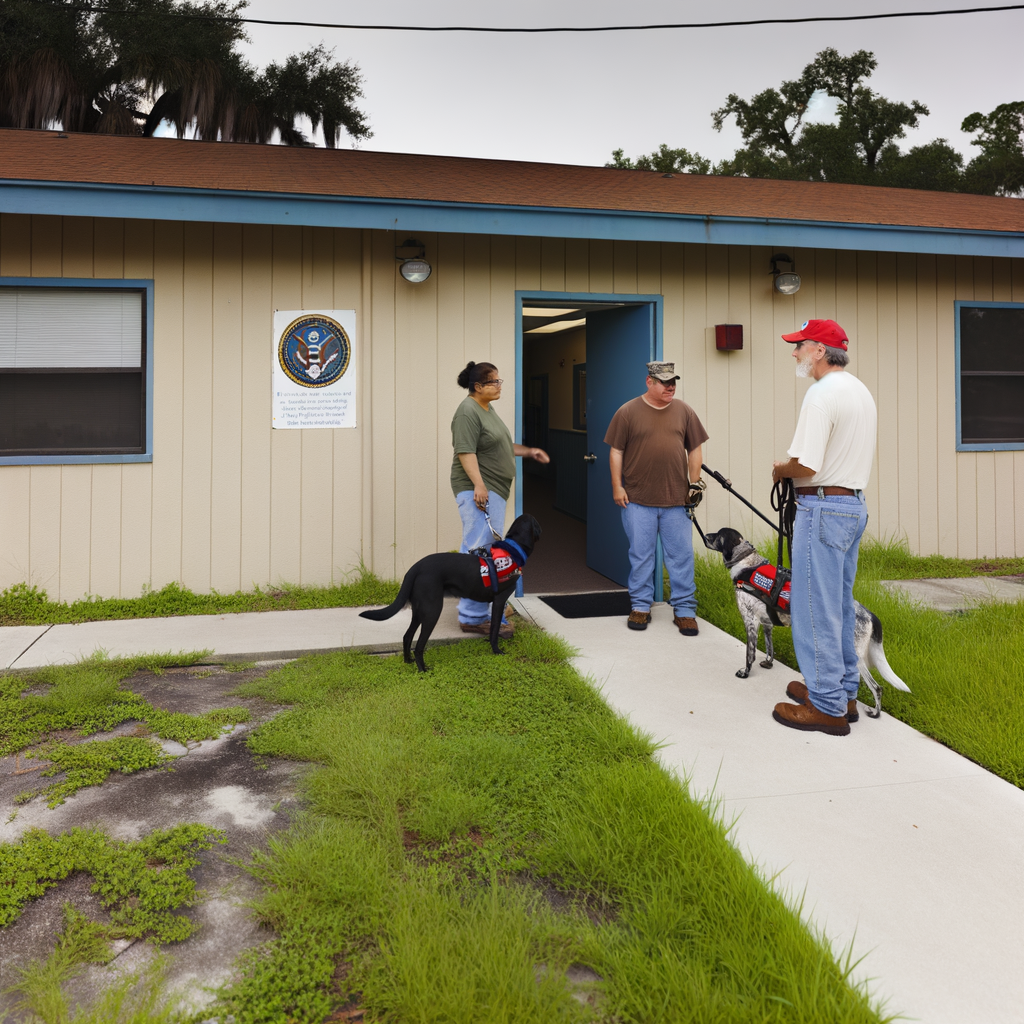When Army Veteran Master Sgt. Mike Knotts withdrew in 2024 after 22 years of service, he wore not only a collection of distinguished honors – including the bronze star, Meritorious Service Medal and Army Commendation Medal with eight oak clusters – but also the invisible weight of trauma. Diagnosed with PTSD and to physical challenges that included the possibility of a hip replacement, Knotts was on a difficult intersection. Then came a phone call that would change his life in a profound and unexpected way.
This call connected Knotts with reconstruction of Warriors, a nonprofit organization dedicated to providing service dogs to veterans. The term “service dog” was unknown to Knotts at the time, but it would soon take deep personal meaning. On August 16, Titan – a German Shepherd specifically trained to meet Knotts’ needs – more than one companion. He became a lifeline, a “right man,” which Knotts described him.
This story of healing and partnership highlights the transformative power of service dogs to veterans who manage with post -traumatic stress disorder. The journey to Knott’s and Titan is one of the resilience, purpose and the quiet strength that comes from a bond built on trust and mutual support. I found this detail striking: The US Army even recognized Titan with the Honor of the Command -Sergeant -Major, a symbolic gesture that emphasizes the dog’s critical role in Knotts’ life.
Jeff Mullins, president and CEO of the rebuilding of warriors, knows first hand how important these animals can be. A veteran himself, Mullins is dependent on his own service dog, Zoey, to help manage the mental and emotional toll for military service. “If I didn’t have her, the demons in your head are just incredible,” he shared. His organization has provided more than 100 service dogs to veterans across the country and tailor each dog’s training to the individual recipient’s specific needs.
This workout begins the moment the dogs are born. Kevin Williams, who has worked a lot on the reconstruction of fighters, explained the intensive process: “You try to introduce them to as many different situations as you can, and you know, different situations, different people, other animals.” The goal is to prepare each dog for the unpredictable realities of life with their future veteran partner. It is a demanding process, but one that Williams describes as deeply rewarding.
Titan’s training included learning how to interact with Knotts’ daughter, Elizabeth, who was born with a rare genetic disorder. The first time Titan met her, he instinctively laid down next to her and gently rested on her head next to her without needing a single command. “They just sat there as if they were friends from that time,” Knotts remembered. The quiet connection momentum talks about the intuitive nature of service dogs and their capacity to sense and respond to human feeling.
For veterans struggling with PTSD, the presence of a service dog may be grounding. These animals are trained to recognize signs of anxiety or distress and respond to ways to help reduce emotional episodes. Whether it pushes their trades to interrupt a flashback or place themselves to create a sense of security in public spaces, service dogs offer a layer of support that is both practical and deeply emotional.
Reconstruction of Warriors’ mission extends beyond just giving trained animals. As Mullins emphasized, “We look at it as giving a veteran an instrument to help them reach their new normal lives.” The “new normal” varies for each person, but the presence of a service dog often marks a turning point in the journey towards healing and reintegration.
In Knotts’ case, Titan is more than a support animal. He is a constant companion, a protector and a symbol of hope. The couple now navigates in life together, side by side as they adapt to civilian life and the challenges that come with it. Titan doesn’t just go next to Knotts – he helps carry the weight of the road in front.
The story of Mike Knotts and Titan is a strong reminder of how service dogs can change lives. For veterans facing the invisible war wounds, these animals not only provide comfort, but also the tools to regain independence and dignity. Through organizations such as reconstruction of warriors, the road to healing becomes a little more navigable – one pawprint at a time.
Read more at Whnt.com
